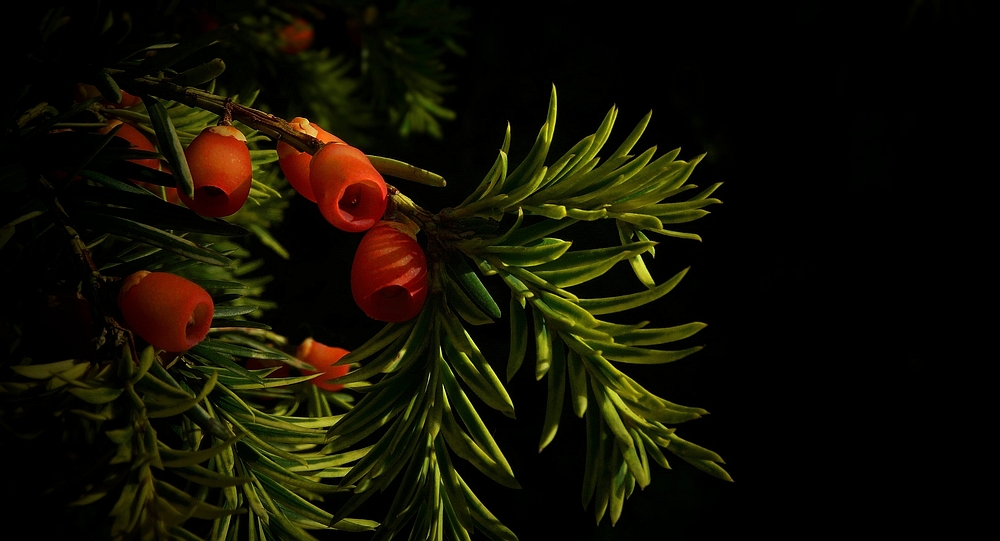The Living Forest (213) : European Yew
This shot shows the leaves and cones of the European Yew, a small- to medium-sized conifer and one of the longest living tree species in Europe.
Some specimen have an age of 2000 years or more.
In autumn, the bright red berry-like shaped seed cones form a nice contrast with the evergreen foliage.
Leaves and seeds are extremely poisonous for men and animals; horses (°) have the lowest tolerance, but birds like Great Tits can eat of it safely and troublefree.
Only the red aril around the seeds is not poisonous, it’s gelatinous and even very sweet tasting.
But as there are many cultivars of Yew into circulation for use in gardens, it’s probably the wisest to warn children by saying that the whole plant is poisonous.
Dutch name : Venijnboom
German name : Europäische Eibe
Latin name : Taxus baccata
***
(°) : The French army of the famous emperor Napoleon Bonaparte lost once a battle due to the Yew.
Somewhere in Europe, the army camped once for the night in a forest that was full of Yews and the soldiers let the horses eat from them.
Next morning, all horses were dead. The French army was totally immobilized and they lost that particular battle.
Only a few warriors survived. One of them was Napoleon.
It’s a true story, not a legend.










Mariechen König 21/01/2014 22:56
Eine wunderbare Aufnahme!!!!!L.G.Carva
Cobrak 21/12/2013 0:56
:-)!Sue Thompson 09/10/2013 16:46
Beautiful light here and the depth of colour is superb.:))
Andrea Sagawe 09/11/2012 15:36
VERY BEAUTIFUL lightBrigitte Hoffmann 09/11/2012 0:32
Genial - dein Bild von der Eibe!Wunderbar das Licht und die Farben!
Salut Brigitte
Jochen Braband 08/11/2012 22:21
Gratulation zu diesem tollen Foto!Sehr harmonische Farben!
Alles Gute, Jochen
Alfred Schultz 08/11/2012 16:54
Reminds me of Christmas.(Green + Red)
Lovely plant.
Greetings - A.
BRYAN CRUTE 08/11/2012 11:24
Super light to these winter berriesRegards
Bryan
Günter Nau 08/11/2012 10:33
Ganz wunderbar, diese Eibe. Eine farbliche Harmonie.Grüße Günter
Heinz Janovsky 08/11/2012 8:04
Wunderschönes leuchtendes Rot vor dem Dunklen Hintergrund.Gruß Heinz
Angelika El. 08/11/2012 0:09
Ganz, ganz wunderbar - die Farben, das Licht - ein Traum!
Die Schärfe und der Bildschnitt sind Klasse und die vielen Früchte sind ein richtiger Hingucker!!!
LG!
Angelika
Wolfgang Bazer 07/11/2012 22:37
An interesting story and an excellent photo!Cheers Wolfgang
Lawson McCulloch 07/11/2012 20:19
It is wonderful that trees can live this long. If they could talk imagine what stories they could tell.kind regards, Lawson
Lily B. 07/11/2012 19:52
A very nice presentation from this season. Beautiful the coulors green an the shining couleurs red-orange.Greeting: Lily
willy ombret 07/11/2012 19:49
une image de gandes qualitésles couleurs sont superbes ainsi que la lumière
amts
willy ombret